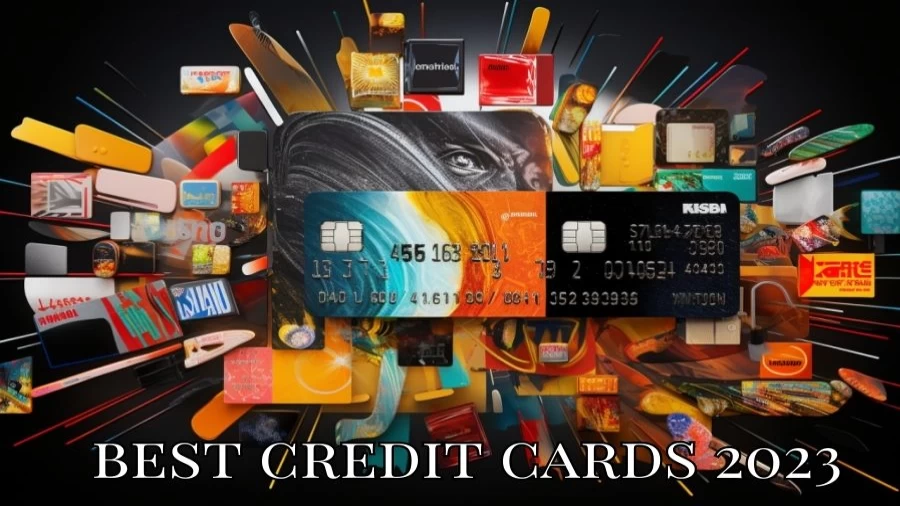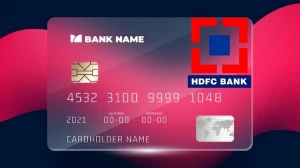
- Home »
- Credit Card »
- Best Credit Cards 2023, What is the Best Credit Card of 2023?
Best Credit Cards 2023, What is the Best Credit Card of 2023?
Top credit cards for 2023 span Wells Fargo Active Cash, Chase Sapphire Reserve, Delta SkyMiles Gold Amex, and Discover it Secured, catering to cash back, travel, and credit-building needs.
by Sai V
Published Aug 21, 2023 | Updated Aug 21, 2023 | 📖 15 min read
On This Page
- Best Credit Cards 2023
- What is the Best Credit Card of 2023?
- What Are the Various Categories of Credit Cards?
- Which Credit Card is the Least Difficult to Get Approved for?
- How Do Visa and Mastercard Differ From Each Other?
- How Are Credit Cards Designed to Operate?
- What Are the Key Terms to Be Aware of Regarding Credit Cards?
- What Are the Advantages and Disadvantages of Utilizing Credit Cards?
- What's the Recommended Quantity of Credit Cards One Should Have?
Best Credit Cards 2023
|
Credit Card |
Best for |
Key Benefits |
|
Wells Fargo Active Cash® Card |
Simple Cash Back |
2% cash back on all purchases, rich sign-up bonus, great for everyday spending |
|
Chase Freedom Flex℠ |
Bonus Cash Back |
Rotating 5% cash-back categories, fixed bonus categories paying 3% to 5%, dining and travel benefits |
|
Chase Sapphire Preferred® Card |
All-Purpose Travel Rewards |
Flexible rewards in various categories, transfer partner options, hotel credit, anniversary points, big sign-up bonus |
|
Chase Sapphire Reserve® |
Premium Travel |
$300 yearly travel credit, airport lounge access, transfer partners, TSA PreCheck or Global Entry credit, rewards on travel and dining |
|
BankAmericard® credit card |
Balance Transfer |
Long 0% intro APR period on balance transfers and purchases, low transfer fee |
|
Bank of America® Customized Cash Rewards credit card |
0% APR for Purchases |
Initial bonus, extended 0% APR period, potential to earn 3% on certain categories |
|
Delta SkyMiles® Gold American Express Card |
Airline |
Bonus rewards at restaurants and U.S. supermarkets, checked-bag benefit, travel perks |
|
World of Hyatt Credit Card |
Hotel |
Solid rewards, free night annually, chance for a second free night, valuable sign-up bonus |
|
Capital One SavorOne Student Cash Rewards Credit Card |
College Students |
Triple rewards on dining, entertainment, streaming, groceries, no annual fee, cash sign-up bonus |
|
Discover it® Secured Credit Card |
Building Credit |
No annual fee, potential upgrade to unsecured card, rewards |
Wells Fargo Active Cash® Card:
This card offers a straightforward 2% cash back on all purchases, making it a reliable choice for everyday spending. It also comes with a generous sign-up bonus that adds extra value to your initial purchases.
Chase Freedom Flex℠:
The Chase Freedom Flex℠ card stands out for its rotating 5% cash-back categories that change every quarter, along with fixed bonus categories of 3% to 5%, which include dining and certain travel expenses. This card provides flexibility to maximize rewards in various spending areas.
Chase Sapphire Preferred® Card:
The Chase Sapphire Preferred® Card is designed for travelers seeking versatile rewards. It offers points that can be transferred to various travel partners, a valuable sign-up bonus, multiple travel benefits, and an annual hotel credit.
Chase Sapphire Reserve®:
Geared towards frequent travelers, the Chase Sapphire Reserve® comes with a range of premium perks, including a $300 travel credit, airport lounge access, transfer options to travel partners, TSA PreCheck/Global Entry credit, and enhanced rewards.
BankAmericard® Credit Card:
This card is ideal for those looking to consolidate debt or make a large purchase. It features an extended 0% intro APR period for both balance transfers and new purchases, along with a low balance transfer fee.
Bank of America® Customized Cash Rewards:
With a substantial sign-up bonus and an extended interest-free period, this card is well-suited for significant purchases. The interest-free period varies based on spending categories.
Delta SkyMiles® Gold American Express Card:
Tailored for frequent Delta airline travelers, this card offers bonus rewards at restaurants and U.S. supermarkets, as well as travel perks like checked-bag benefits to enhance your travel experience.
World of Hyatt Credit Card:
The World of Hyatt Credit Card is designed for hotel enthusiasts. It provides rewards such as a free annual night, a chance for a second free night, and a valuable sign-up bonus, all aimed at enhancing your hotel stays.
Capital One SavorOne Student Cash Rewards:
Geared towards college students, this card offers triple rewards on dining, entertainment, streaming, and groceries. It comes with no annual fee and includes a cash bonus.
Discover it® Secured Credit Card:
This card is an excellent option for individuals looking to rebuild their credit. It has no annual fee, offers automatic reviews for potential credit line upgrades, and even provides rewards on your spending.
What is the Best Credit Card of 2023?
In a market crowded with 2% cash-back credit cards, the Wells Fargo Active Cash® Card distinguishes itself through its enticing introductory APR proposition and the array of benefits linked to its Visa Signature status. Boasting a rewarding feature, the card offers 2% cash rewards on all purchases made.
Setting it further apart is the card's introductory APR offer, granting cardholders a 0% introductory APR for the initial 15 months from account activation, valid for both purchases and qualifying balance transfers. After this initial period, a variable APR of either 20.24%, 25.24%, or 29.99% takes effect, contingent on the individual's creditworthiness. It's essential to note that a balance transfer fee of 3% is applicable within the first 120 days, which then transitions to a fee of up to 5%, subject to a minimum of $5.
Furthermore, the card entices with a welcome offer of $200 cash rewards bonus upon achieving $500 in purchases during the initial 3 months post-account opening, all the while maintaining a $0 annual fee. Alongside these perks, the Wells Fargo Active Cash® Card presents the added benefit of cell phone protection for those who pay their monthly cell phone bill using the card. However, a word of caution—this card does come with a foreign transaction fee, making it a less favorable choice for international use.
What Are the Various Categories of Credit Cards?
Rewards Credit Cards:
Rewards credit cards usually grant you points or cash back based on a portion of your expenditures, and some even provide extra points in popular categories like groceries, fuel, and dining out. These cards also often present various redemption avenues, such as statement credits, gift cards, or merchandise. For individuals who can pay off their card promptly, rewards credit cards are an excellent choice for everyday expenses like groceries and household supplies. By utilizing a rewards credit card for essential purchases, like groceries, you can earn cash back and travel rewards for expenses you'd make regardless.
Cash Back Credit Cards:
Cash back credit cards make it effortless to amass cash back or statement credits through your spending. The manner in which rewards are dispensed can differ between cards. Some offer a flat rewards rate, while others provide bonus points in specific categories such as dining or travel. Certain cards even present bonus rewards that rotate quarterly, coupled with a consistent rewards rate for non-bonus purchases. Many cash back credit cards also come without an annual fee, although some with more generous rewards systems may entail modest annual fees.
Travel Credit Cards:
Travel credit cards extend the opportunity to amass rewards tailor-made for travel endeavors. This could encompass earning versatile travel credits applicable to any travel-related purchase or points that can be transferred to airline or hotel loyalty programs. Certain travel credit cards also facilitate point accrual within specific programs like frequent flyer or hotel loyalty initiatives. Even routine purchases can be leveraged to gather points and miles that make your next voyage more budget-friendly. Furthermore, luxury travel credit cards might offer advantages like airport lounge access and travel credits for Global Entry or TSA PreCheck.
Business Credit Cards:
Business credit cards enable the separation of personal and business expenses while concurrently accumulating rewards on business-related spending. Interestingly, business credit cards can span multiple categories, including cash back, general rewards, travel, or even secured cards. Eligibility for a business credit card typically necessitates a business or income-generating activity. Optimal business credit cards are those that enhance everyday spending, simplify business operations, and provide features conducive to bolstering the bottom line.
Student Credit Cards:
Student credit cards serve as a stepping stone for young individuals with limited credit histories. These cards have more lenient eligibility criteria, making approval more accessible. Most student credit cards forego annual fees and may proffer rewards for each dollar spent, alongside potential bonus perks for achieving good grades. Assuming responsible usage, acquiring a student credit card can aid youngsters in cultivating their credit profiles and forming sound financial practices.
Secured Credit Cards:
In contrast to unsecured credit cards, where no collateral is required, secured credit cards mandate a cash deposit to secure a modest line of credit, often mirroring the initial deposit's amount. These cards are particularly beneficial when establishing credit from scratch or recuperating from financial setbacks. Although pledging collateral might not be the most appealing prospect, secured credit cards are renowned for their relatively lenient approval process.
Co-branded Credit Cards:
Co-branded credit cards are store-specific or brand-specific credit cards offered through established issuers such as Chase, Citi, or American Express. They can encompass airline cards enabling mileage accumulation within a dedicated frequent flyer program or hotel cards that yield points within a hotel loyalty initiative. Several co-branded credit cards also form partnerships with retail establishments, even though their utility is not limited to store transactions.
Store Credit Cards:
Store credit cards, dispensed by retail stores, grant shoppers the ability to defer payments over time. While typically confined to the store issuing them, certain store credit cards can be used within a group of related stores. In general, store-branded credit cards exhibit higher interest rates compared to universal-purpose cards and may occasionally entail deferred interest charges. However, prudent management can unlock valuable perks and rewards programs.
Which Credit Card is the Least Difficult to Get Approved for?
- Gaining approval for a credit card is never guaranteed, even if you boast an exceptional credit score. Factors like income adequacy, recent card acquisitions, and other considerations could lead to application rejection by the issuer.
- The term "easy" is subjective in this context. Those with solid credit and a comfortable income are more likely to qualify for a broader array of credit cards. Conversely, individuals with a middling credit score might encounter obstacles in securing approval, even with satisfactory earnings.
- Generally, the simpler it is for a credit card issuer to manage risk, the higher the probability of approval. This is why secured credit cards are often recommended for individuals looking to establish or rebuild their credit. The requirement of a security deposit minimizes the issuer's risk exposure.
- If your credit score falls within the mid-600s range and you're in the process of building credit, consider exploring credit cards designed for fair credit. These cards come with added perks while not necessitating an excellent credit score.
- Store credit cards are typically more attainable than those issued by banks. They usually offer lower credit limits and higher interest rates. However, they can serve as a practical tool for building credit as long as you maintain low balances relative to your credit limit and clear your balance every month. If store credit cards are of interest to you, there are some top options available in 2023.
How Do Visa and Mastercard Differ From Each Other?
This excerpt addresses a frequently asked question concerning credit card companies, specifically regarding the distinctions between Visa and Mastercard. Practically all businesses that accept credit cards generally welcome both Visa and Mastercard, barring a few exceptions like the exclusive use of Visa at Costco. Consequently, this prompts consumers to ponder whether there's any meaningful difference between the two.
It's vital to bear in mind that Visa and Mastercard do not issue credit cards themselves; rather, they serve as payment networks responsible for processing transactions. The bulk of the advantages associated with a credit card stem from the card issuer, not the network.
Given that the acceptance rates for both networks are almost indistinguishable, it's wiser to direct your attention towards the unique features offered by individual cards rather than the network they are affiliated with. For a more comprehensive comparison between Visa and Mastercard, you may delve deeper into the topic by exploring the provided resource.
How Are Credit Cards Designed to Operate?
Credit cards operate as a financial instrument akin to a personal credit line, providing the flexibility to make immediate purchases with deferred payment options. Upon gaining approval for a credit card, a predetermined credit limit is assigned, delineating the highest permissible amount that can be charged to the card. As transactions are carried out, the available credit limit diminishes correspondingly.
When the cardholder settles the outstanding balance, the available credit limit is replenished.One notable aspect of credit cards is their capacity to facilitate the carrying over of unpaid balances from one billing cycle to the next. This allows users the choice of making partial or minimum payments rather than settling the entire owed amount. However, this convenience comes with a potential downside – the potential incurring of interest charges, which are computed based on the card's annual percentage rate (APR).
The APR essentially signifies the cost linked to borrowing funds via the credit card. It's important to bear in mind that credit card interest is relevant only if unpaid credit card debt is maintained across successive months. To effectively manage one's financial affairs, it is advisable to promptly and fully clear the credit card balance whenever feasible.
What Are the Key Terms to Be Aware of Regarding Credit Cards?
Interest Rate:
Interest is the cost charged by the card issuer for granting you a credit line. The interest rate plays a significant role in determining the amount you'll be charged by the card issuer for carrying a balance on your credit card from one month to the next. These rates are influenced by your credit score.
Annual Percentage Rate (APR):
Within the realm of credit cards, the terms 'interest rate' and 'APR' can be used interchangeably. The APR of your credit card is essentially the interest that is levied on the balance you carry over from one billing cycle to another.
Credit Limit:
This represents the maximum amount you're allowed to spend on your credit card. Your credit limit is not fixed and can vary based on your credit score. Different credit limits might apply to different types of transactions. For instance, your credit limit for cash advances, if available on your credit card, will likely be lower than your limit for regular purchases.
Credit Card Balance:
The statement balance on your credit card is the total amount you owe at the conclusion of a billing cycle. This includes all unpaid transactions made using your credit card, along with any outstanding fees.
Credit Card Issuer:
Often confused with credit card networks like Visa or Mastercard, which facilitate transactions between merchants and cardholders, credit card issuers directly provide credit cards to consumers. These issuers can be financial institutions such as banks or credit unions."
What Are the Advantages and Disadvantages of Utilizing Credit Cards?
Advantages of Using Credit Cards:
- Earning Rewards and Enjoying Perks: Credit card programs often provide opportunities to earn rewards, such as cash back or points, which can be utilized to save money on significant expenses like travel and dining. Additionally, bonus statement credits and special perks enhance the value of credit card ownership.
- Building and Enhancing Credit Score: Responsible usage of credit cards is a powerful means of establishing and elevating your credit score. Card issuers report payment history and card utilization to credit bureaus, contributing to a gradual improvement in your creditworthiness over time.
- Financial Flexibility and Added Security: Credit cards eliminate the need for carrying cash, providing you with financial flexibility for purchases. Moreover, credit cards offer an extra layer of security and peace of mind, especially through protections for eligible purchases and safeguards against identity theft.
- Debt Consolidation and Interest-Free Periods: Some credit cards feature introductory periods with 0% APR on balance transfers, allowing you to consolidate debt from other sources and pay it off over time without incurring interest. Similarly, cards with introductory APR on new purchases offer an extended time frame for settling your expenses.
- Assisting Others in Establishing Credit: Those with strong credit scores can aid family members or friends in building their credit by designating them as authorized users on their credit card. This enables them to build credit history without resorting to secured or student cards, and it could also lead to rewards accumulation.
Disadvantages of Using Credit Cards:
- Potentially High Interest Rates: Credit cards generally come with higher interest rates compared to other credit sources like mortgages. Failing to clear your balance each month results in elevated payment amounts due to these higher rates.
- Risk of Accumulating Debt: Overspending beyond your ability to pay off the balance within a billing cycle can result in credit card debt. This debt accumulation leads to steep interest charges and can cause financial strain.
- Negative Impact on Credit Score: Misusing credit cards can damage your credit profile, which might lead to higher loan interest rates, increased insurance premiums, and obstacles in finding housing or employment opportunities.
- Incurring Various Fees: Despite the advantages, credit cards often come with an array of fees. While many of these fees can be sidestepped by using the card responsibly, fees such as foreign transaction fees and annual fees can amass if not accounted for or offset by rewards.
What's the Recommended Quantity of Credit Cards One Should Have?
Just as there's no universally recommended credit card that suits everyone, there isn't an ideal number of credit cards that applies to everyone. The appropriate quantity depends on individual needs and the level of effort one is willing to invest in credit card management. People have diverse approaches—some prefer a single card for all transactions, while others possess numerous cards and select the most fitting one for each purchase. When determining the right number for you, consider the following:
No Fixed Limit:
The number of credit cards you can possess isn't capped. Each lender evaluates your credit independently, and there's no definitive point at which you're considered to have 'too many cards.'
Credit Score Impact:
While maintaining a mix of various account types (credit cards, mortgages, loans, etc.) can positively affect your credit score, it's not mandatory to hold multiple accounts of each type. Effectively managing just one credit card can be adequate for upholding a favorable credit score.
Best Credit Cards 2023 - FAQs
1. What's the best credit card for 2023?
The Wells Fargo Active Cash® Card is highly recommended for its 2% cash back and introductory APR offer.
2. What are rewards credit cards?
Rewards credit cards offer points or cash back based on spending, with various redemption options like statement credits or merchandise.
3. How do Visa and Mastercard differ?
Visa and Mastercard are payment networks; card benefits come from issuers, so focus on card features over network differences.
4. What are the pros of using credit cards?
Credit cards offer rewards, build credit, financial flexibility, and added security, but misuse can lead to debt and fees.
5. How many credit cards should I have?
The right number varies, but it's crucial to manage cards responsibly based on personal financial habits and needs.




